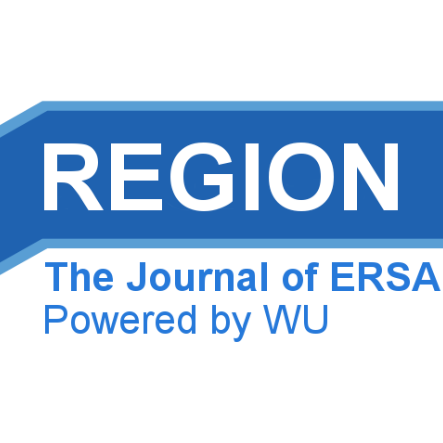The Asymmetric Impacts of Fiscal Consolidation on Poverty and Social Exclusion: Regional Perspective
DOI:
https://doi.org/10.18335/region.v9i2.421Abstract
The presented paper contributes to the current state of discussion about the effects of fiscal policy on economic activity in three key points. It focuses on the effects of fiscal policy on poverty and social exclusion instead of on broad measures of economic performance, the analysis is performed on the regional level of some EU national economies and it focuses on possible asymmetric impacts according to the level of the economic performance of the regions regarding the national levels. The results show that fiscal restrictions, both expenditure and income-oriented, have significant negative impacts on both poverty and social exclusion. Especially as far as social exclusion is concerned the impacts on the already underperforming regions seem to be even more profound. When poverty is considered as a measure of inequality instead of social exclusion then revenue-oriented fiscal restrictions seem relatively more harmful than expenditure-oriented fiscal consolidations as far as the underperforming regions are concerned.

Downloads
Published
How to Cite
Issue
Section
License
Copyright (c) 2022 Vít Pošta

This work is licensed under a Creative Commons Attribution 4.0 International License.
REGION is an open journal, and uses the standard Creative Commons license: Copyright We want authors to retain the maximum control over their work consistent with the first goal. For this reason, authors who publish in REGION will release their articles under the Creative Commons Attribution license. This license allows anyone to copy and distribute the article provided that appropriate attribution is given to REGION and the authors. For details of the rights authors grant users of their work, see the "human-readable summary" of the license, with a link to the full license. (Note that "you" refers to a user, not an author, in the summary.) Upon submission, the authors agree that the following three items are true: 1) The manuscript named above: a) represents valid work and neither it nor any other that I have written with substantially similar content has been published before in any form except as a preprint, b) is not concurrently submitted to another publication, and c) does not infringe anyone’s copyright. The Author(s) holds ERSA, WU, REGION, and the Editors of REGION harmless against all copyright claims. d) I have, or a coauthor has, had sufficient access to the data to verify the manuscript’s scientific integrity. 2) If asked, I will provide or fully cooperate in providing the data on which the manuscript is based so the editors or their assignees can examine it (where possible) 3) For papers with more than one author, I as the submitter have the permission of the coauthors to submit this work, and all authors agree that the corresponding author will be the main correspondent with the editorial office, and review the edited manuscript and proof. If there is only one author, I will be the corresponding author and agree to handle these responsibilities.




